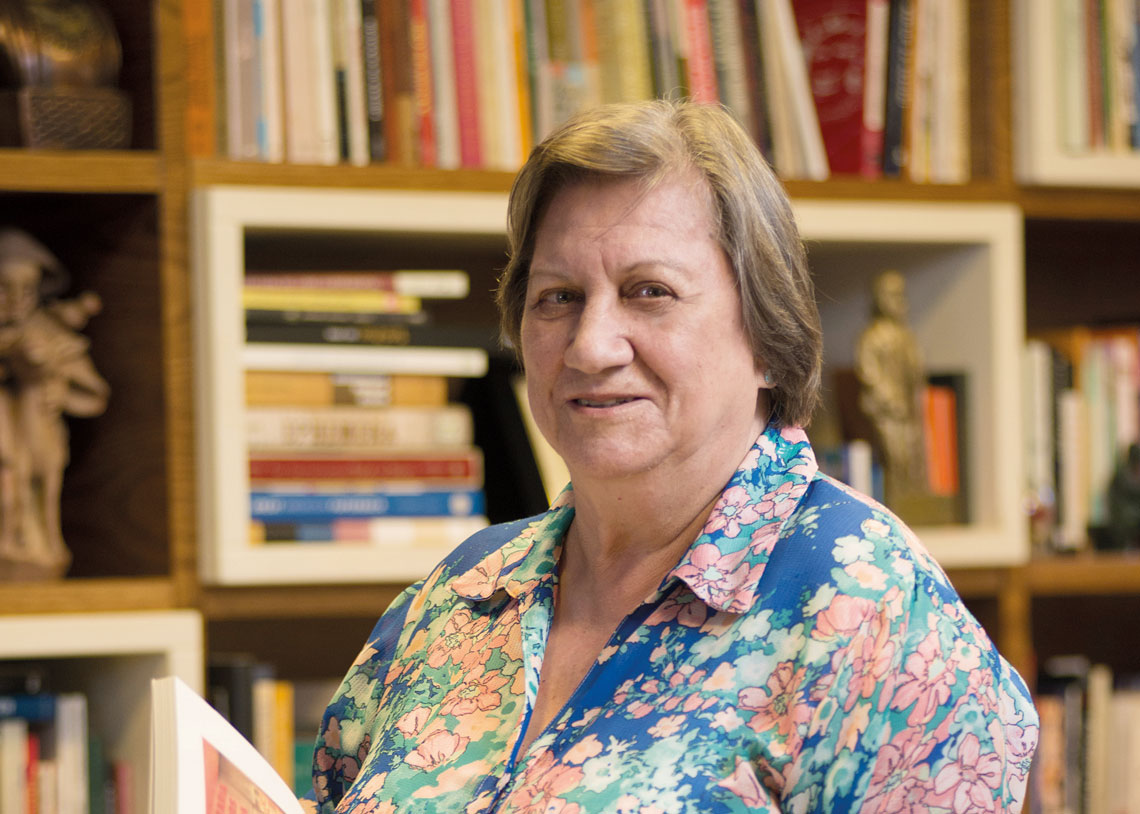Taking a multifaceted approach to research into childhood literacy, integrating teaching method analyses with social, political, and historical perspectives, was one of the biggest contributions made by Magda Becker Soares, professor emeritus at the Federal University of Minas Gerais (UFMG). The researcher died of cancer on January 1, aged 90, and is survived by three daughters and two sons, in addition to four grandchildren and two great-grandchildren.
Soares earned her degree in Neo-Latin from UFMG in 1953 and defended her PhD in didactics at the same institution in 1962. In 1990, as a professor at the UFMG’s School of Education, she founded the Center for Literacy, Reading, and Writing (CEALE), where she then spent decades studying literacy, supervising other researchers, and teaching students.
Hércules Tolêdo Corrêa of the Federal University of Ouro Preto (UFOP) highlights that Soares was interested in what university can do for the working classes, explaining that the educator introduced childhood literacy studies in Brazil based on ties to the theories of Paulo Freire (1921–1997), of whom she was a disciple and a friend. He adds that the educator’s research covered a range of historical moments involving concepts of language, teaching, and literacy, and she was never afraid to review or rethink her own analyses. “Magda was not afraid to change her position on things she had written about,” he says.
Corrêa was close to Soares from the very beginning of his research career, which he started straight after graduating in 1989. “Magda thought about literacy not only from a cognitive point of view, but also from the perspective of the uses and functions of writing,” he says. Another of her contributions was her ability to persuade policymakers to adopt this innovative vision of literacy, especially since the turn of the twenty-first century. “The 2012 National Program for Literacy at the Right Age was created based on her studies on literacy, among other sources,” says Corrêa, who is also a researcher at CEALE.
According to Carlota Boto, director of the School of Education at the University of São Paulo (FE-USP), Soares argued that literacy should be taught in sync with the students’ context. “She saw the development of a literate society as a way of creating a fairer society, where wealth would be more fairly distributed and everyone would have access to culture,” she says. Boto highlights the focus on innovative approaches in her studies on childhood literacy. “By reading her books, we ourselves learn how to become advocates of literacy.”
“By suggesting that the process is more than simply teaching letters and sounds, that it is also a means of perceiving the social function of a text, Magda revolutionized the way educators thought about childhood literacy,” emphasizes Renata Junqueira de Souza, from São Paulo State University (UNESP), Presidente Prudente campus. According to Souza, Soares departed from Paulo Freire’s studies on adult literacy to create methodologies aimed specifically at children.
Using elements from children’s daily lives to teach them how to read and write, Soares presented a different view of the traditional approach, which was based on teaching the alphabet and phonetic families. “She argued that we need to start from what a child knows before they start school in order to successfully teach them how to read and write,” explains Souza. Soares thus created the concept of “literatizing,” which unites the idea of literacy with a social perspective and the need to also teach phonetic families.
Souza worked with Soares when she was executive coordinator of the National School Library Program (PNBE), run by Brazil’s Ministry of Education, from 1998 to 2015. “Magda was a simple and modest person, always looking to share her knowledge with others. She was very active and liked to be on the go—she continued driving to UFMG until just a few months before she died,” she recalls.
After retiring from UFMG in 2000, Soares continued to collaborate with CEALE, as well as acting as a consultant to the municipal education system in Lagoa Santa, Minas Gerais, coordinating literacy projects and and creating libraries in the town’s public schools. “Magda’s work in Lagoa Santa significantly improved the town’s score in the Primary Education Development Index [IDEB],” says Souza.
With 12 published books, some of her outstanding works include Alfabetização no Brasil: O estado do conhecimento (INEP, 1989); Letramento: Um tema em três gêneros (Autêntica, 1998); Linguagem e escola: Uma perspectiva social (Ática, 2002); Alfabetização: A questão dos métodos (Contexto, 2016), which won the Jabuti Award in 2017; and Alfaletrar: Toda criança pode aprender a ler e escrever (Contexto, 2020), written based on her 20 years of experience working in the Lagoa Santa school system. In 2015, she received the Admiral Álavaro Alberto Award for Science and Technology from the Brazilian National Council for Scientific and Technological Development (CNPq).
Until shortly before her death, Soares was working on a book on the use of literature in teaching reading and writing. Boto from USP believes that she left the challenge of expanding the application of her intellectual legacy. “This could be the big issue to be faced by Brazil’s new government. Magda’s dream was to see a joint effort in establishing an effective literacy policy in Brazil,” concludes Boto.
Republish

